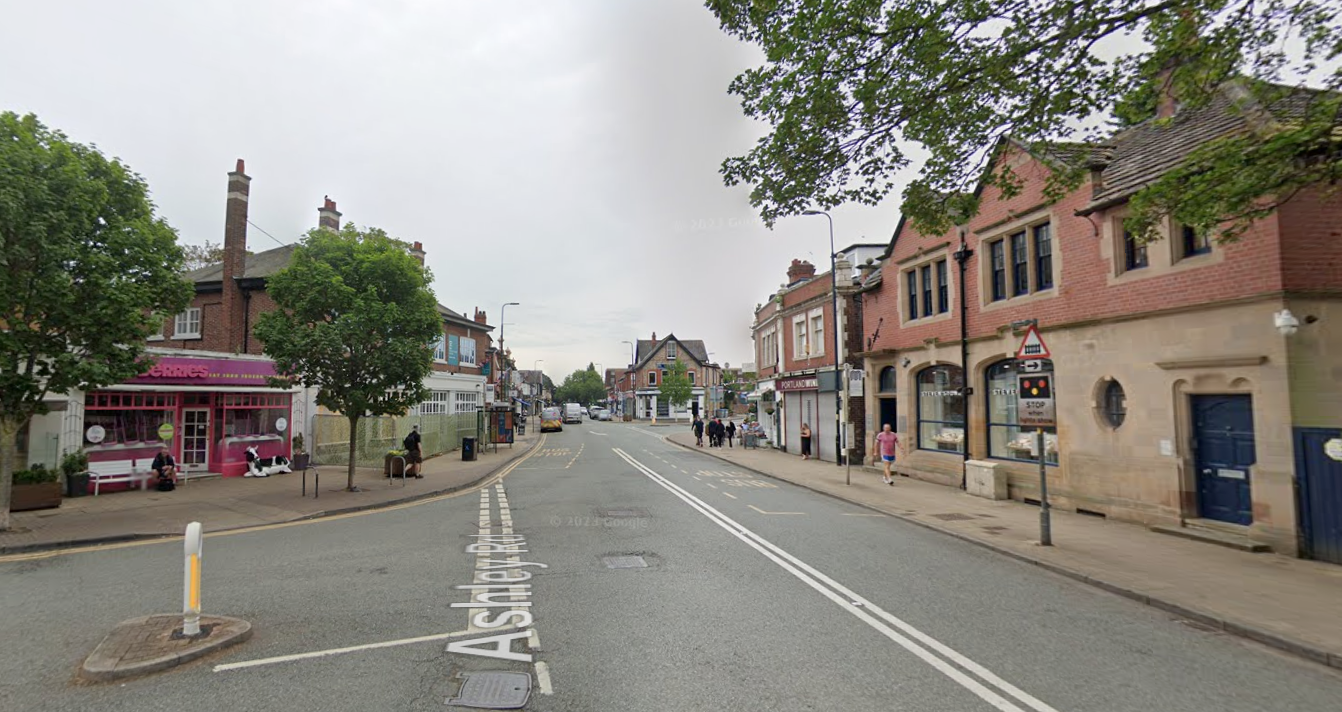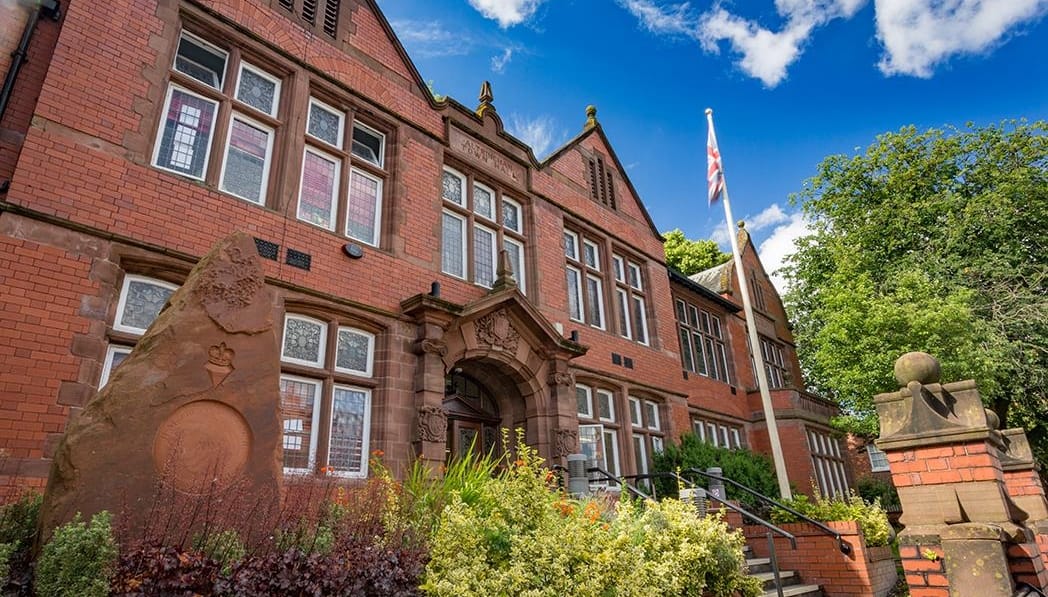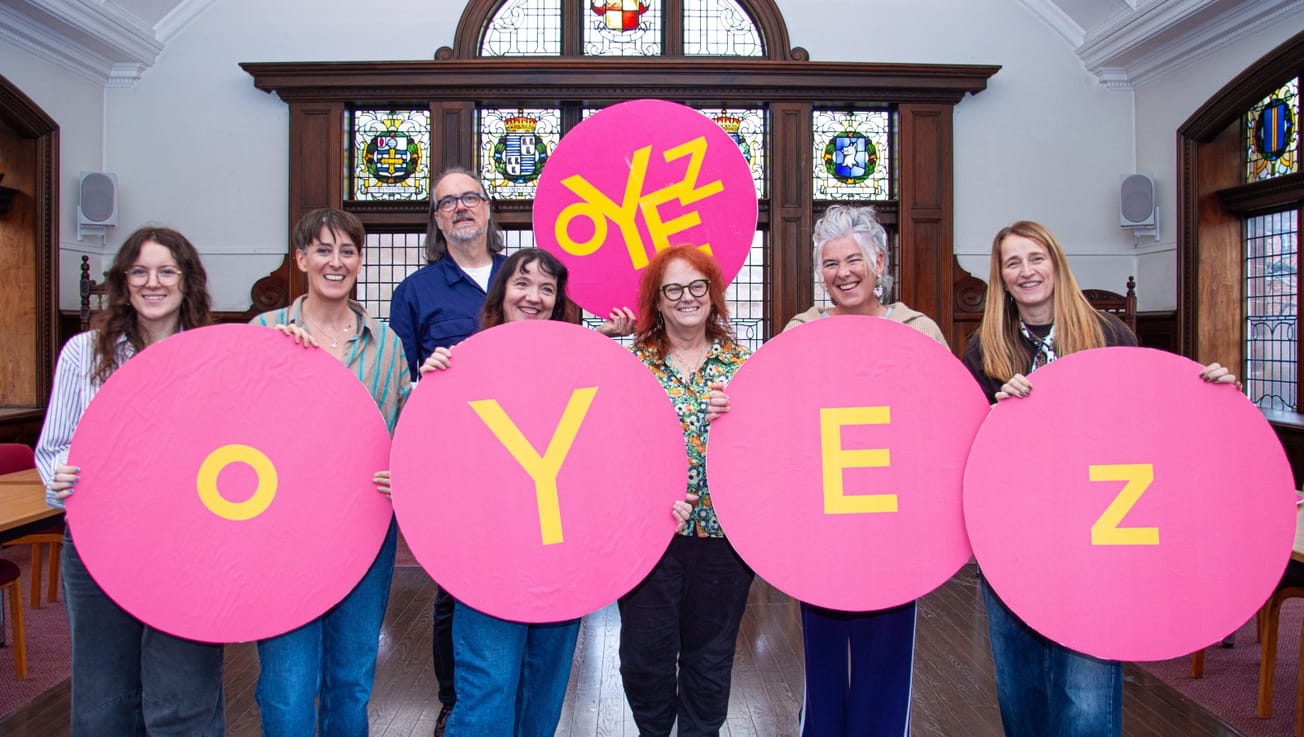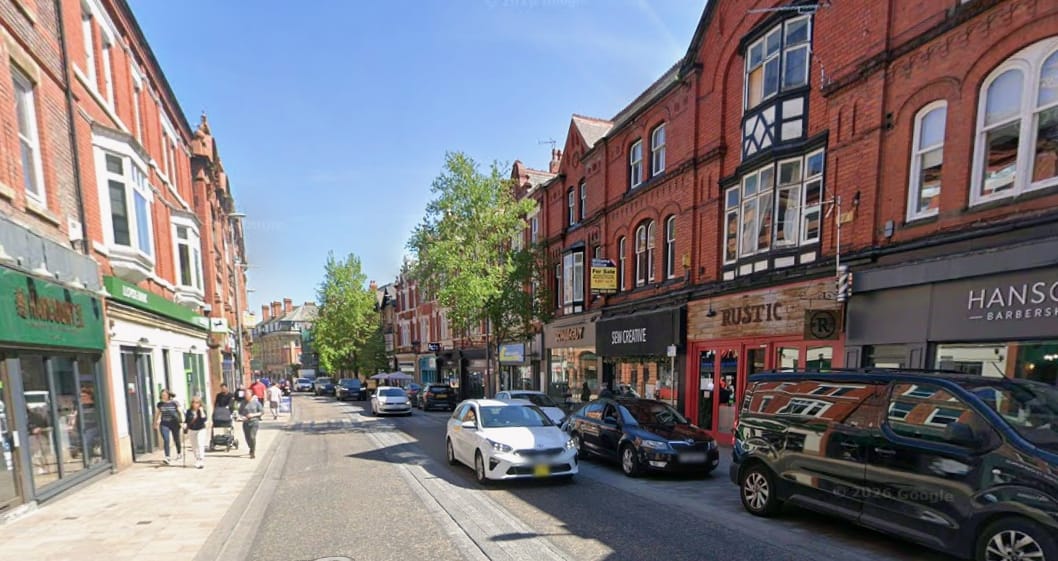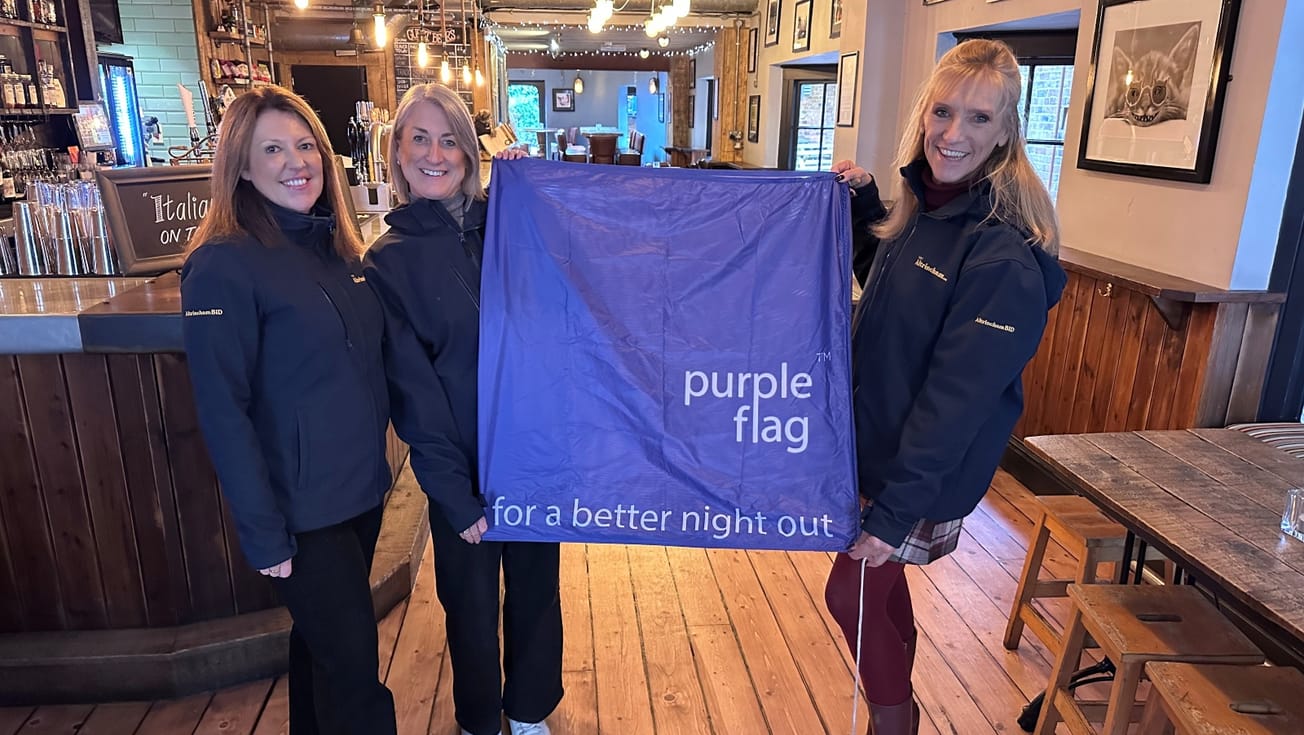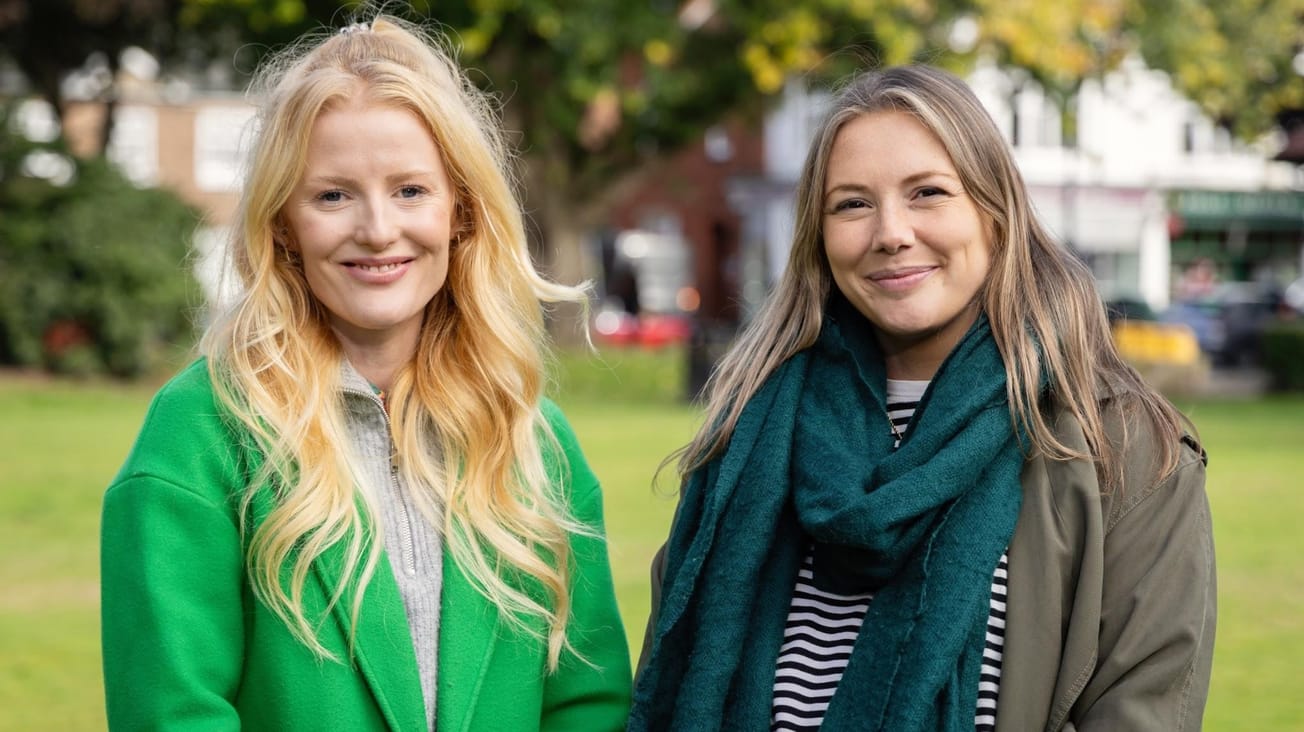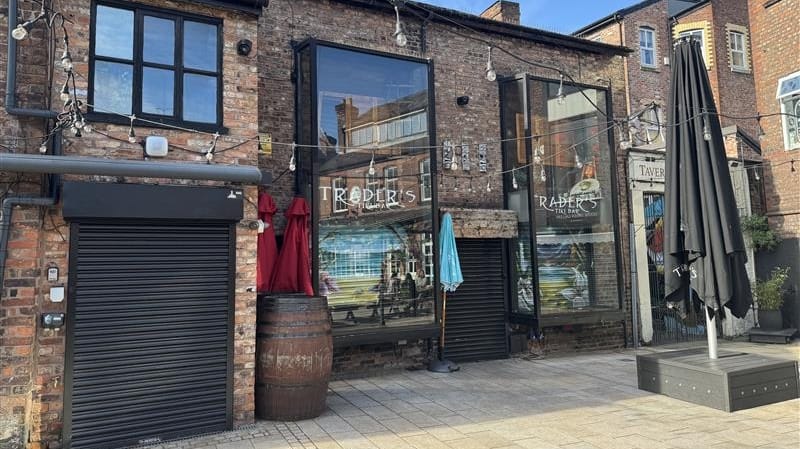A plan to create an eruv, an area within which orthodox Jews can move more freely on the sabbath, was last night given the green light by Trafford Council.
The proposal was passed at a meeting of the council's planning and development management committee - despite the application having received around 600 objections from the local community.
A total of 52 5.5-metre galvanised steel posts are now set to be installed at 26 sites around Hale and Hale Barns, each connected by a line of filament or nylon wire.
The proposal was passed by a majority of the committee last night despite a plea at the meeting by local Jewish man Mark Guterman, the son of Henry Guterman MBE, the former President of the Manchester Jewish Representative Council, who said that "the wider Jewish community do not want this proposal now" and that only "seven or eight" people would benefit from it in any case.
Last night's decision marks a major landmark in a 10-year bid by the orthodox Jewish community locally to erect an eruv.
An eruv is an area exempt from ancient Jewish law which forbids the carrying or pushing of items outside private areas on Shabbat, the Jewish sabbath, which lasts between sunset on Friday to sunset on Saturday. Food, medication and prayer books are among the items which cannot be carried, while pushing prams or wheelchairs is also forbidden.
According to the application, which was called ‘The Shabbat Inclusion Project’, an eruv would bring "numerous benefits for the Jewish residents, particularly the elderly, disabled, and families with young children... It would enable them to fully participate in Shabbat observance and lead meaningful and fulfilling lives".
The eruv will see the installation of 5.5-metre steel posts at 26 locations on the following roads: Hale Road, Burnside, Chapel Lane, Rossmill Lane, Barrow Lane, Rappax Road, Bankhall Lane, Ashley Road, Heather Road (bridge), Hazelwood Road, Broomfield Lane, Queen's Road, Acacia Avenue, Sandileigh Avenue, Grove Lane, Delahays Road, Meadow Way, Grove Lane, Tintern Drive, Woburn Drive and Shay Lane.
Two of the steel posts would be located in Hale village, close to Yogberries and Steven Stone jewellery shop.
An Officer Report from Trafford Council had already recommended the application for approval ahead of last night's meeting.
Summarising the decision at last night's meeting, Sarah Lowes, Major Planning Projects Manager at Trafford Council, said the council had concluded that the eruv would cause no harm to "heritage assets" or "visual amenity", citing that the "slim" poles were only 8.9cm in diameter, compared to 24cm telegraph poles.
She said: "There has been a significant amount of local objection to this application and concerns raised about the potential impact on community cohesion, contrary to the social role of planning of fostering sustainable communities, and the forming of what some consider to be a boundary in this area."
While admitting that the boundary "will for some people create tensions with their own beliefs which may be difficult for them to reconcile", in planning terms the eruv was not actually recognised as a boundary, she said.
"The Officer Report concludes that there are tangible and direct benefits of the resultant eruv that this planning application would facilitate to the Jewish community, and to those who hold another protected characteristic, such as age or disability.
"It is considered that this would outweigh any impact to those with other faiths or beliefs. It is considered that the overall equalities impact of the proposals would be positive."
However, in objecting to the proposal, Mark Guterman claimed that of 936 "letters and petitions" that were against the proposal, "a large amount has come from within the Jewish community".
He added: "The wider Jewish community do not want this proposal now. With the heightened tensions of the Middle East and anti-semitism on the rise, a small group of vigilantes are fronting for Hale Synagogue.
"This has made life much more uncomfortable for Jews that live in the area and it is destroying years of inter-faith work, for what purpose? We have been proposed by the proposers that seven or eight members of the Hale community would use the eruv. We would not be opposed if there was a demand for the eruv, say a couple of hundred people, but there is no need for it at the moment."
He said that any suggestions of antisemitism were "nonsense".
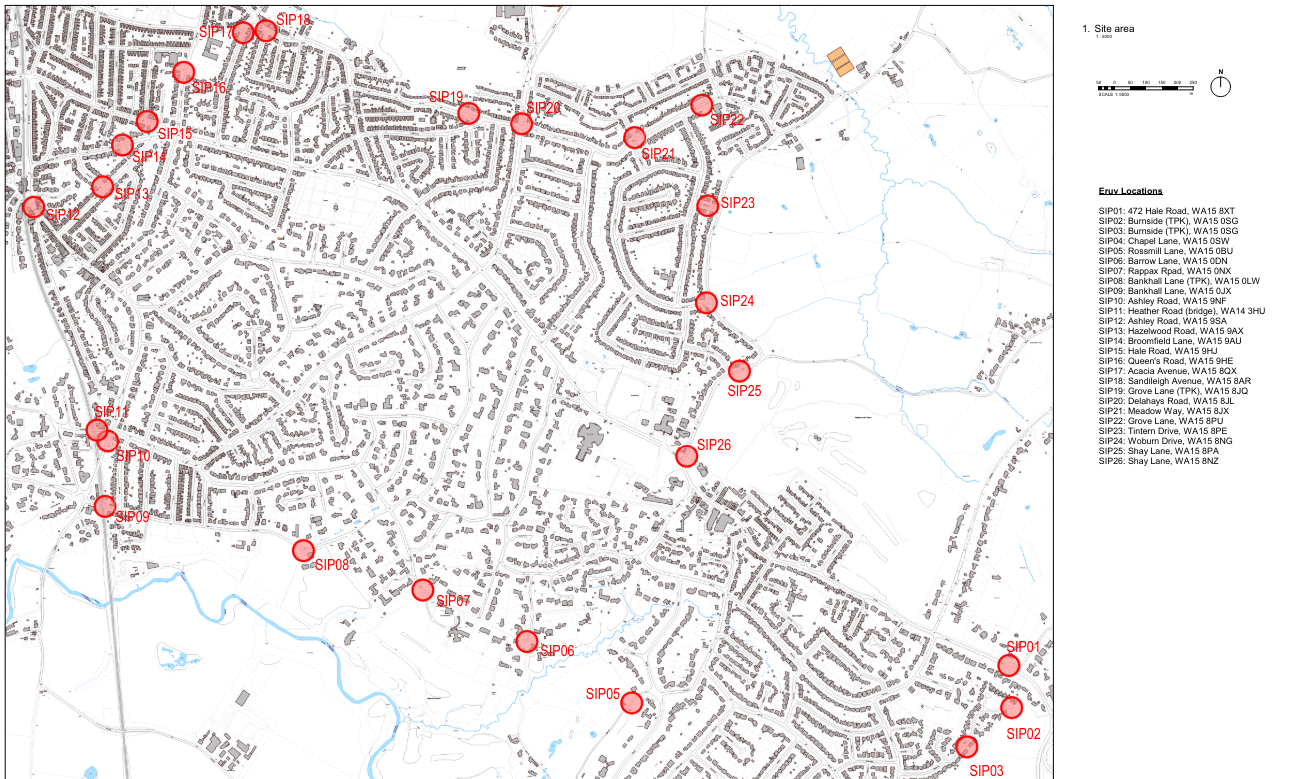
"This has caused a lot of disturbance and upset in the wider community of Hale, on the basis that it appears to be one group opposing their wishes over the general community. An Englishman's home is his castle. I have no problem with more synagogues, churches or mosques, as they would all own their own places of worship and no-one would be imposing their wishes upon others."
However, Rabbi Yisroel Binstock from Hale Synagogue, who also spoke at last night's meeting, said he saw "first-hand how beneficial an eruv would be, particularly for our most vulnerable members".
He added: "Without an eruv any member of the Jewish community who are not able to walk unaided and rely on the assistance of a wheelchair, walking stick or buggy face a decision on whether they choose to compromise on sacred Shabbat observance or remain isolated from the rest of the Jewish community at the most important time of the week.
"With an eruv they are able to participate in religious and social life. It (Hale) has been a beautiful place for my wife and I to raise our family, and I understand why people might be concerned that an eruv could negatively affect this. I'm here to reassure you that we appreciate the beauty of the neighbourhood and we are not looking to change it."
Another speaker in favour of the proposal, a mother of two young children called Miss Jackson, insisted that an eruv would "not disrupt the lives of anyone else".
"For those of us who observe Jewish law, leaving the house with small children in a pram is not allowed on Shabbat unless there is an eruv.
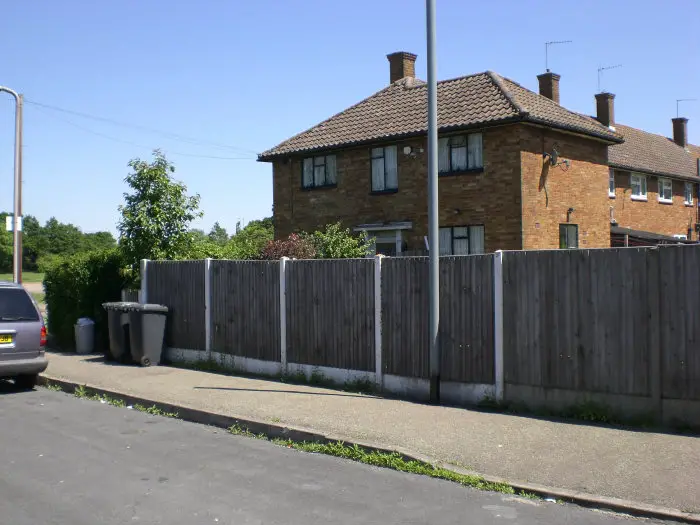
"Without this simple yet crucial mechanism, parents with young children are often confined to their homes, missing out on the community connections that are at the heart of our faith. This does not need to be the case.
"The eruv, once established, will not interfere with the wider community. It will be virtually invisible, existing solely to serve the Jewish community, and will not disrupt the lives of anyone else."
One of the councillors who spoke against the proposal last night was Cllr Phil Eckersley, Conservative councillor for the Bowdon ward.
He said the would cause "more harm than good" and would equate to "significant alteration to our streetscape".
However Owain Sutton, Green Party councillor for Hale, said: "This has been a sensitive and complex case. Many people have asked genuine questions about the eruv, but sadly we have also seen antisemitism come to the fore. So much so, it was necessary for the planning department to remove representations from the website.
"We are proud of the rich diversity across Hale, and the small minority who discriminate are far outnumbered by those who always welcome and appreciate people from all backgrounds."
Acknowledging that it was a "difficult" application, Cllr Barry Winstanley, Chairman of the Planning and Development Management Committee, said that this was not the end of the road for those who objected to the plan.
He said: "This is the planning committee, we look at planning permission, this is not the only process that this will have to go through before it eventually happens or doesn't happen. Throughout that process there will be opportunities for consultation with the community."
Plans for an eruv in Hale and Hale Barns first surfaced in 2014, when a total of 117 poles were planned covering five square miles and a 12-mile boundary.
However, the plans led to a furious reaction from local residents, with over 300 people attending a public meeting, after which the leader of Hale’s Jewish community pledged to take the plans "back to the drawing board".
The plans were first revived in 2016, with 95 poles earmarked along a 12-mile route, but after another backlash the Hale Eruv Project Charitable Trust withdrew the proposals “in the interests of communal unity".
At the time, local MP Sir Graham Brady said the plans risked creating “rancour and intolerance” in the area.
There are currently around 20 eruvs in the UK, two of them in the Greater Manchester area. The most recent eruv was approved for installation in Cheadle by Stockport Council in 2020.

